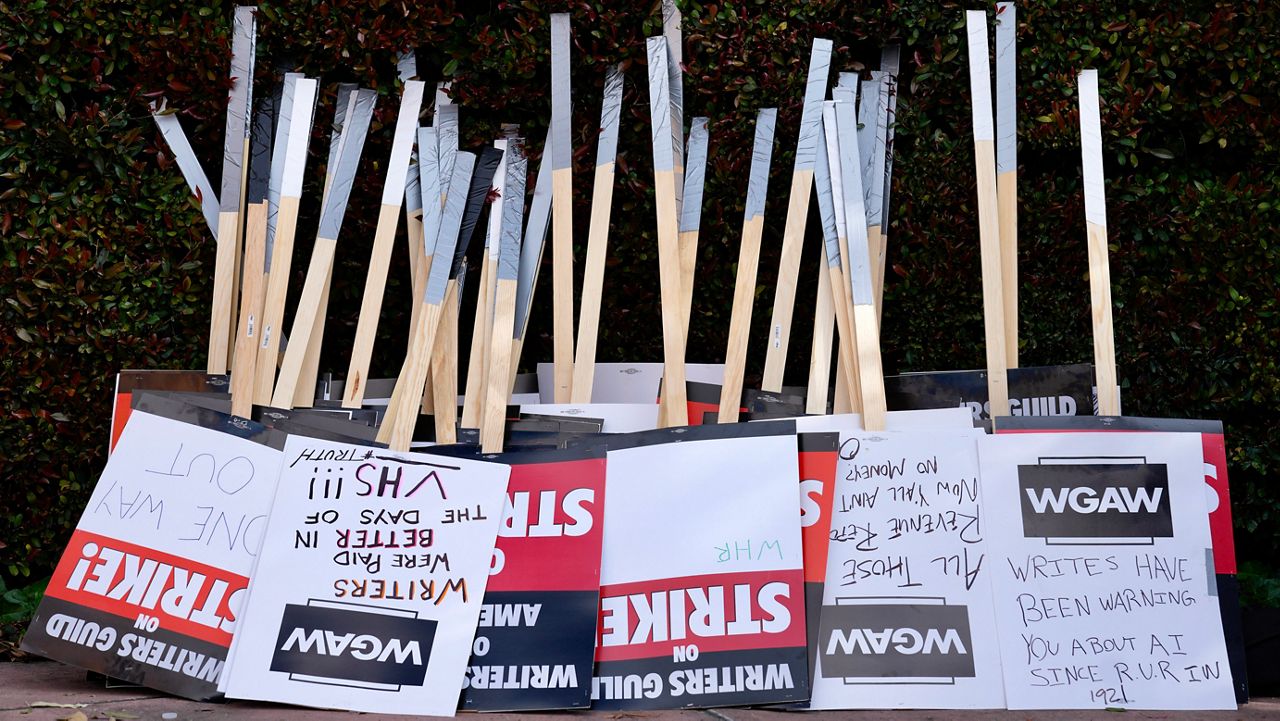Los Angeles' entertainment industry lost 17% of its workers during this year’s writers and actors strikes, according to a new study from the Otis College of Art and Design.
The study comes just one day after the 160,000 members of SAG-AFTRA voted to ratify a hard-won new contract following a nearly four-month strike that paralyzed much of Hollywood.
While actors and writers saw the most rapid decline in job losses while the unions were striking, camera operators, editors and sound and lighting technicians were also severely affected, the study found. Members of the Writers Guild of America struck the major Hollywood studios May 2 through Sept. 27, overlapping with members of the Screen Actors Guild, who struck July 14-Nov. 9 to demand higher residual payments from streaming services and protections over the use of artificial intelligence.
Significant as the strikes were on entertainment jobs, the losses were not as significant as they were during the COVID-19 pandemic, the study found.
“This is because the pandemic led to the virtual shutdown of most forms of production, whereas this year production has continued in non-striking parts of the industry, such as reality TV and commercials,” the study said.
Even before 160,000 members of SAG-AFTRA and 11,500 members of the Writers Guild of Americia went on strike, entertainment industry employment was shrinking. After peaking in May 2016, entertainment employment has fallen by 26%.
“The recent WGA and SAG-AFTRA strikes caused a major rupture in Hollywood, but they represented an expression of underlying changes that have been shaping the industry for the past decade,” the study said.
While the strikes have “had a noticeable impact on entertainment industry employment, as well as shooting activity,” the study added, “these changes should be considered within the context of a broader restricting that is occurring across the industry.”
Important questions about the industry’s trajectory remain unresolved. Peak TV is more of an enduring threat to employment than the strikes.
Between 2016 and 2022, streaming platforms battling for subscribers caused productions to surge, but the business model has since transitioned to focus on profitability and sustainability.
Artificial Intelligence also continues to be “a looming threat to employment in Hollywood, given its capacity to perform an increasing number of functions within the industry," the report says.



